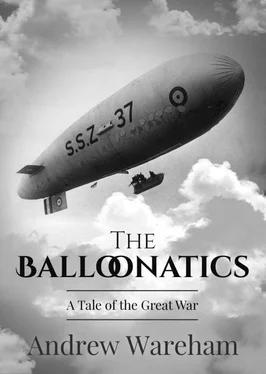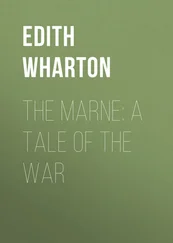Oadby agreed, wholeheartedly, had no idea what the boss was talking about. Far be it from him to say so, however. He busied himself with Peter’s shoes, not as shiny as they should be. Gleaming shoes announced a busy servant – everybody knew that the senior officer did not polish his own footwear.
“Lunchtime, sir. Working dress?”
“Definitely, Oadby. No time to change to mess dress in the middle of the day. I hope the President of the Wardroom will see the sense of that, when he gets here.”
That might present a difficulty, considering it. The commanding officer could not be senior in the wardroom. Peter, being in charge of flying, was in some ways a commanding officer and should not take the responsibility. That would leave the senior of the lieutenants in the role, inexperienced in a post that involved creating an efficient and friendly off-duty atmosphere as well as maintaining discipline in a fighting unit.
The CO could deal with that, when he arrived.
The officers congregated in the anteroom, introducing themselves, few of them already acquainted with each other.
Peter knew the three subs he had brought with him from Polegate. There were two others already present, together with five uncomfortable midshipmen who did not really believe they belonged in the wardroom.
Time to break the ice. Peter coughed and called for their attention.
“Not the normal way of doing things, gentlemen – making speeches before lunch! However, just to save time, I am Lieutenant Commander Naseby, senior in Flying. I know my three subs from Shoreham – Mr Horrocks, Mr Tubbs, Mr Bracegirdle. I have met Mr Norris. Who else must I know?”
Sublieutenants Wiggins and Sargent announced themselves, followed by the mids, Davies, Leburn, Griffiths and Woods.
Peter turned to the two new subs.
“Are you both to be pilots, gentlemen?”
“I am, sir. Wiggins, that is.”
“Not me, sir. I believe I am to be junior to the Gunnery Officer, sir. In the magazine, that is.”
“Necessary, I must think, Mr Sargent. There are bombs and such to be dealt with and blimps to be loaded up each day. A lot to do in the magazine. Where is it, by the way?”
“Underground, sir. Carved into the hillside behind us by a quarter of a mile. We have a traction engine and its trailer as transport.”
Sargent seemed excited by the traction engine, would no doubt be found driving it whenever possible. Peter grinned – the boy was young yet.
“Very good. What of the mids – are you all to fly?”
The five affirmed that they were, with varying degrees of enthusiasm.
“I shall speak to you all later. For the moment, the senior steward appears to be beckoning us to the table. By the way, gentlemen, unless otherwise ordered, mess dress for dinner only.”
Half had changed, the rest were in working uniforms.
The meal was better than adequate, a vegetable soup of some kind followed by fried fish, locally caught that morning, with potatoes and spring greens and a tart to follow, probably made with canned raspberries but sweet and filling. There was coffee afterwards, tea for the very English, strong and to naval specifications.
They retired to the anteroom to smoke and break the ice, managing to talk more with full bellies.
Peter deliberately sat down with two of the midshipmen.
“Griffiths and Woods, is it not?”
They agreed it was.
“From your appearance – newish uniforms – I imagine you are wartime mids, not Dartmouth products?”
“Yes, sir. Two months in, sir, myself, and Griffiths has six weeks. Basic training, sir. Griffiths came onto the course late, sir, but he knew how to handle a Lee-Enfield already and had his Morse so he could catch up easily.”
“Cadets at school, Griffiths?”
“No, sir. My father was posted to West Africa, sir, back in ‘08. My mother and I went with him. There wasn’t a lot to do at the trading station, sir, inland from Freetown. I learned my letters from my mother and cacao and oil palm with my father and spent my free time with the native soldiers, sir, the guards. They manned the telegraph station as well. They were pleased to teach me how to use the key and handle a rifle. We got on well together, did a little bit of shooting in the bush. We came back to England just before the war, sir, my father being promoted to head office in London. It seemed strange to me, having to go to a school, even as a day boy, having to wear a uniform and pretend to be a child…”
Peter suspected the native soldiers had had daughters, some of them helping Griffiths to grow up far earlier than he would have in England. He nodded sympathetically – life in London’s suburbs must have been a shock to a boy from the West African bush.
“I could not get on at school, sir. I knew no Latin at all and was far ahead of the others in English, having read for pleasure from my father’s books since I was eight. I knew the mathematics, as well. I was tougher, too, and they bounced off me at rugby, helped by a knee or two. I was happy to volunteer when I was sixteen, my father’s firm giving me the good word with the navy. More volunteers than places for midshipmen, sir. I chose the RNAS for being less stuffy than the regular navy.”
“How did you know it was?”
“I looked at the different people going into the offices, sir, where they were recruiting. You could see what they were like.”
“Very good, Mr Griffiths. I suspect you will fit in well with us. We don’t keep to quite so many rules as the regular navy. I have found a difference since I came to the RNAS, I know. What about you, Mr Woods?”
“I was at school, sir, and couldn’t face two more years before I could join up and then training at a depot. I was afraid the war would be finished before I could get into it. Couldn’t be having that, sir, and I was thinking of buying a birth certificate, sir, to say I was eighteen – you can get them easily in Windsor, sir, if you go to the right public house – not in school uniform, of course!”
Peter gathered Woods was an Etonian, well able to find the ten or so pounds a forgery would cost.
“Then I heard that the Navy was taking wartime midshipmen, sir, and put my name forward. They accepted me – Eton and all that – and I was last on the list for the day, my name starting with ‘W’, and they said there were vacancies in the RNAS, the regular navy full up for the next two months. If I took the RNAS I could join in three days, on the Monday following.”
“So you hopped on onboard – a ‘pierhead jump’, we call it.”
“Yes, sir. I had begged a weekend off from school, an exeat, for a family funeral, memorial service, that is – plenty of them just lately – and just didn’t go back again. By the time they found out where I was, it was too late. My parents did not object. They had always wanted me to join the Army, to go to Sandhurst rather than up to Oxford when I left school, so joining young was the sort of thing they were in favour of. My father is a Major in the Foot Guards, sir, in France just now, so my mother had to take the decision. She told me to fight for the King, sir.”
Peter approved – they sounded like the right sort.
“We shall get you flying as soon as we possibly can. I want to start our patrols this week. Are you handy with a Lewis?”
“Not really, sir. We were shown one in training but only had time to fit a pan and take it off again, in the classroom. Not experience on the range, sir.”
“Right. Both of you speak to Mr Sargent and pass the word to the other mids. Tell him it is my request that you be brought up to speed on the Lewis Gun and as soon as possible.”
Peter retired to his office, worn out by enthusiastic youth, pleased to have them under his command, afraid that too much of their company would be tedious.
Читать дальше












